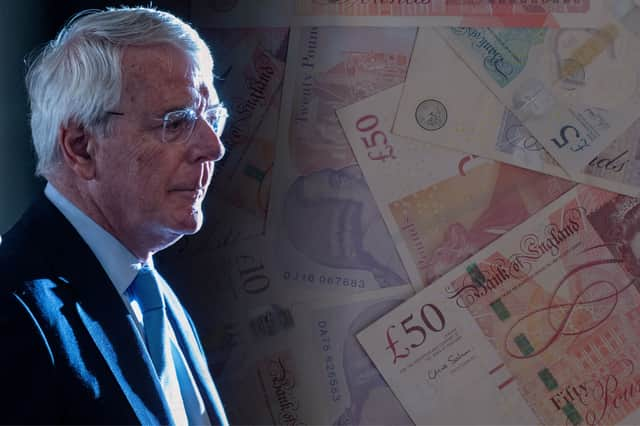Sir John Major has claimed back millions of public money since leaving office to fund his ‘public duties’
This article contains affiliate links. We may earn a small commission on items purchased through this article, but that does not affect our editorial judgement.


Sir John Major has claimed millions of taxpayer money since leaving office, toward the costs of ‘fulfilling public duties’.
The former prime minister has claimed the maximum amount available through the little-known Public Duties Cost Allowance (PDCA) for the last decade, amounting to £115,000 per year plus pension contributions worth up to 10% of that.
Advertisement
Hide AdAdvertisement
Hide Ad‘Limited public profile’
Sir John has claimed at least £1,640,858 through the PDCA since 2006, and likely hundreds of thousands on top of that, since he became eligible in 1997.
The PDCA is intended to help former prime ministers manage the costs of maintaining their public duties after they leave office.
Set-up after Margaret Thatcher left Downing Street in 1991, the scheme has seen millions paid out to former PMs over the last three decades.
This is despite many of them maintaining a very limited public profile during that period.
Advertisement
Hide AdAdvertisement
Hide AdSir John has made limited public interventions since leaving parliament, and has no public office through which he can be contacted.
Tony Blair, Gordon Brown, David Cameron and Theresa May all benefit from the scheme, while former deputy prime minister Nick Clegg, who was initially added to the scheme despite not serving as PM, ceased his claims in 2018/2019.
Thatcher and Major claimed almost £2m over 8 years
Though the scheme has been in effect since 1991, the Cabinet Office, which administers the PDCA, has only included information on the allowance in its annual reports since 2013.
However, by analysing ministers’ answers to parliamentary questions since 2010, NationalWorld has been able to establish the amounts claimed by each recipient since 2006/2007, and the total claimed through the scheme going back to 1997/1998.
Advertisement
Hide AdAdvertisement
Hide AdMinisters have previously claimed that “information on payments before the 1997-98 financial year is obtainable only at disproportionate cost”.
Between 1998 and 2006, the total amount claimed through the scheme was £1,957,854.
Although there is no breakdown of this figure, there were only two former prime ministers eligible to claim through the scheme throughout this entire period.
Sir John is likely to have claimed less than Margaret Thatcher up until 2001 when he left Parliament entirely.
Advertisement
Hide AdAdvertisement
Hide AdWhat is the PDCA?
According to a government briefing note, the PDCA was introduced “to assist former Prime Ministers, still active in public life”.
It states: “Payments are made only to meet the actual cost of continuing to fulfil public duties. The costs are a reimbursement of incurred expenses for necessary office costs and secretarial costs arising from their special position in public life.
“The allowance is not paid to support private or parliamentary duties. The PDCA is in addition to any constituency office which they may maintain as an MP.”
The PDCA scheme was set up by the former senior civil servant Sir Robin Butler in 1991, shortly after Mrs Thatcher announced her resignation.
Advertisement
Hide AdAdvertisement
Hide AdIn addition to the allowance, former Prime Ministers are entitled to claim a pension allowance to contribute towards the pension costs of their staff. This is limited to a maximum of 10% of their staff salary costs.
Ministers have previously admitted that all claims made through the PDCA “must be supported by documentary evidence”.
However, the Cabinet Office has on a number of occasions refused Freedom of Information requests, including from NationalWorld, requesting a full break-down of the expenses claimed for through the PDCA.
A message from the editor:
Thank you for reading. NationalWorld is a new national news brand, produced by a team of journalists, editors, video producers and designers who live and work across the UK. Find out more about who’s who in the team, and our editorial values. We want to start a community among our readers, so please follow us on Facebook, Twitter and Instagram, and keep the conversation going.
Comment Guidelines
National World encourages reader discussion on our stories. User feedback, insights and back-and-forth exchanges add a rich layer of context to reporting. Please review our Community Guidelines before commenting.
